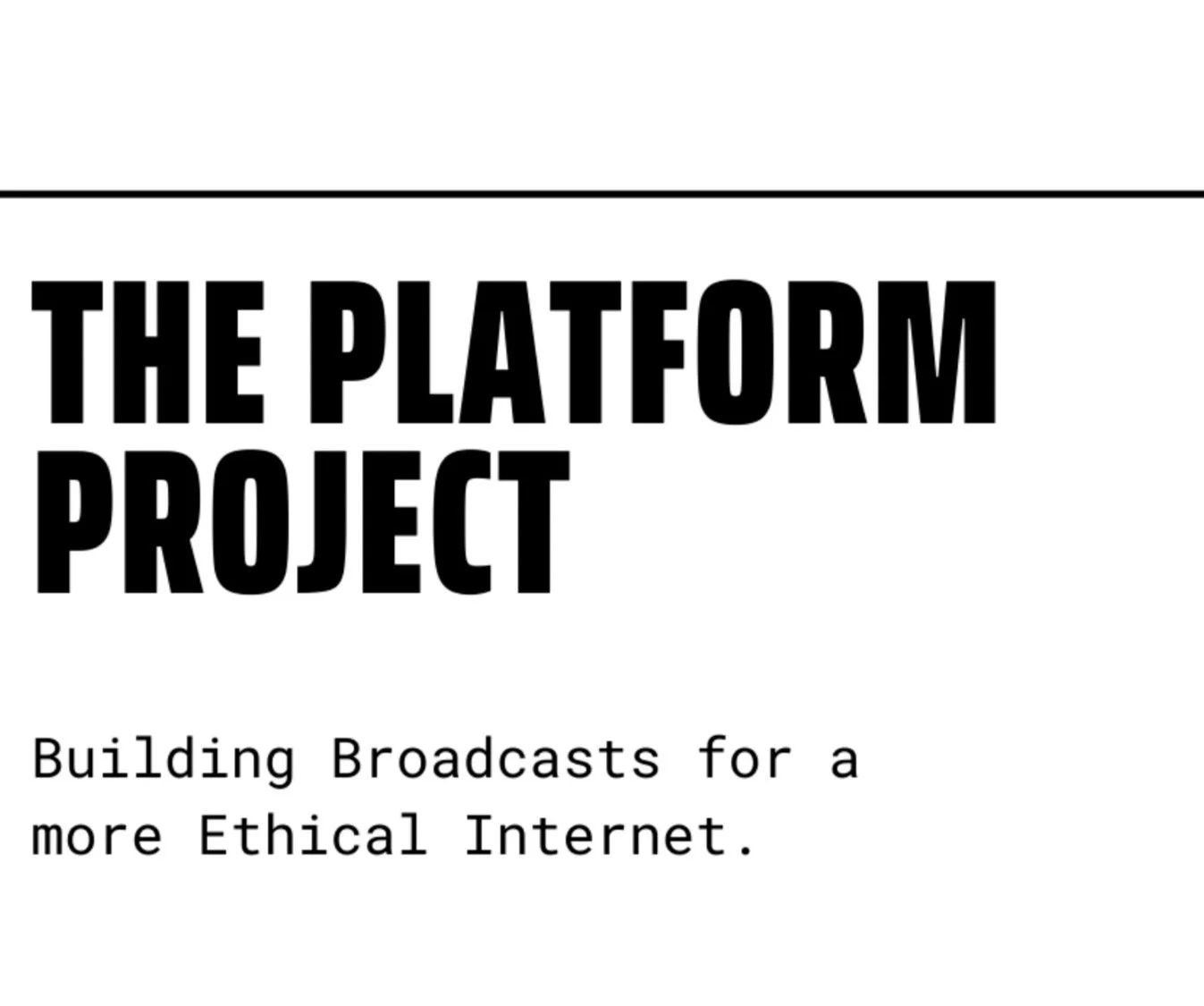
The Platform Project is a collection of resources utilizing multiple modes of media and design to inform and empower community members to consciously engage with data, information, media, and technology. By sharing counter-platforming strategies, this project seeks to raise consciousness around how users can interact with platforms in ways that focus on internet ethics and digital literacy.
In “Participations: Dialogues on the Participatory Promise” Part 5: Platforms”, Christopher Kelty defines Counter-Platforms:
As the type of resistance that takes place on the platform as object
As a practice of creating other platforms
As being against platforms as they are currently understood and utilized
As similar to the concept of counterpublic, as used by Michael Warner (“Publics and Counterpublics”)
From this perspective, counter-platforming is a strategy which can be used in order to oppose the power of the mainstream status quo of public digital media platforms. Through understanding the relationship between platforms, operating systems, and algorithms, counter-platforming can be conceptualized as divesting from the mainstream rule-abiding form of usage. This understanding of the counter platform also coincides with Kara Keeling’s writing on the concept of ‘Queer OS”. For Keeling, the Queer OS is “at odds with the logics embedded in the operating systems” and seeks to change that system through “scholarly inquiry and social activism” (Keeling 154). Therefore counter platforming can be viewed as a queer method of challenging social media algorithms to work on behalf of users as well as exposing how these algorithms work against users.

What I Talk About When I Talk About Canceling Platforms
An article unpacking the politics of platforms and the purpose of counter-platforming strategies in this current moment in time.
Make the Algorithm, Don’t Let it Make You
A How-To Guide on Curation and Content Consumption through understanding the algorithm behind social media recommendations.









